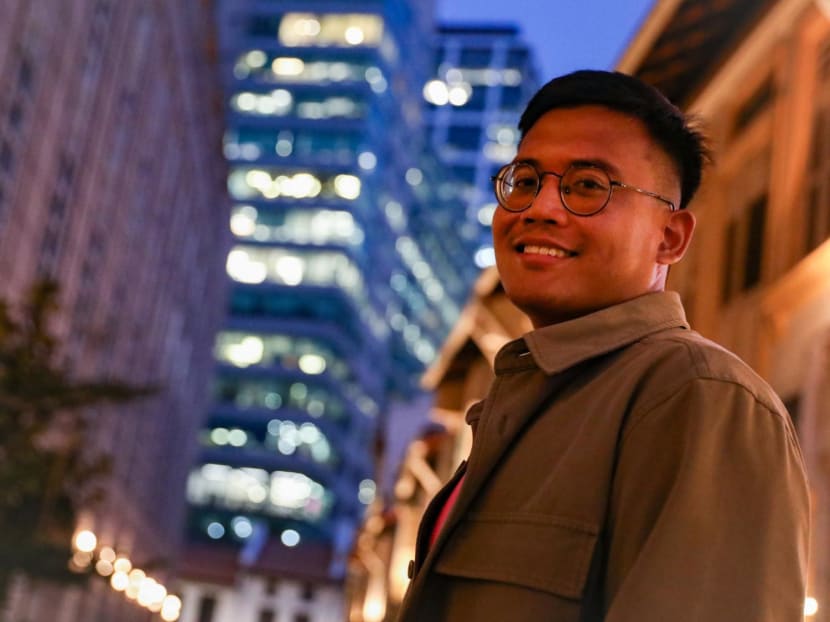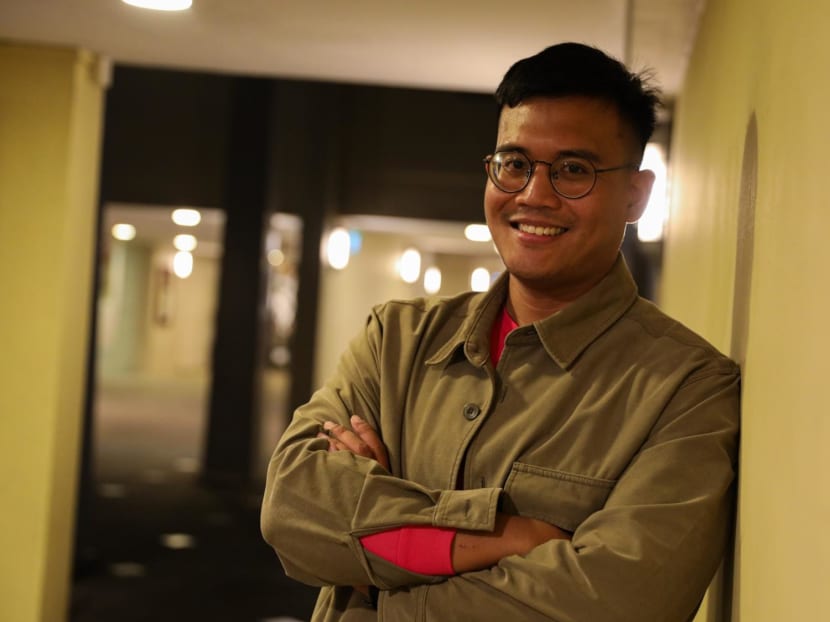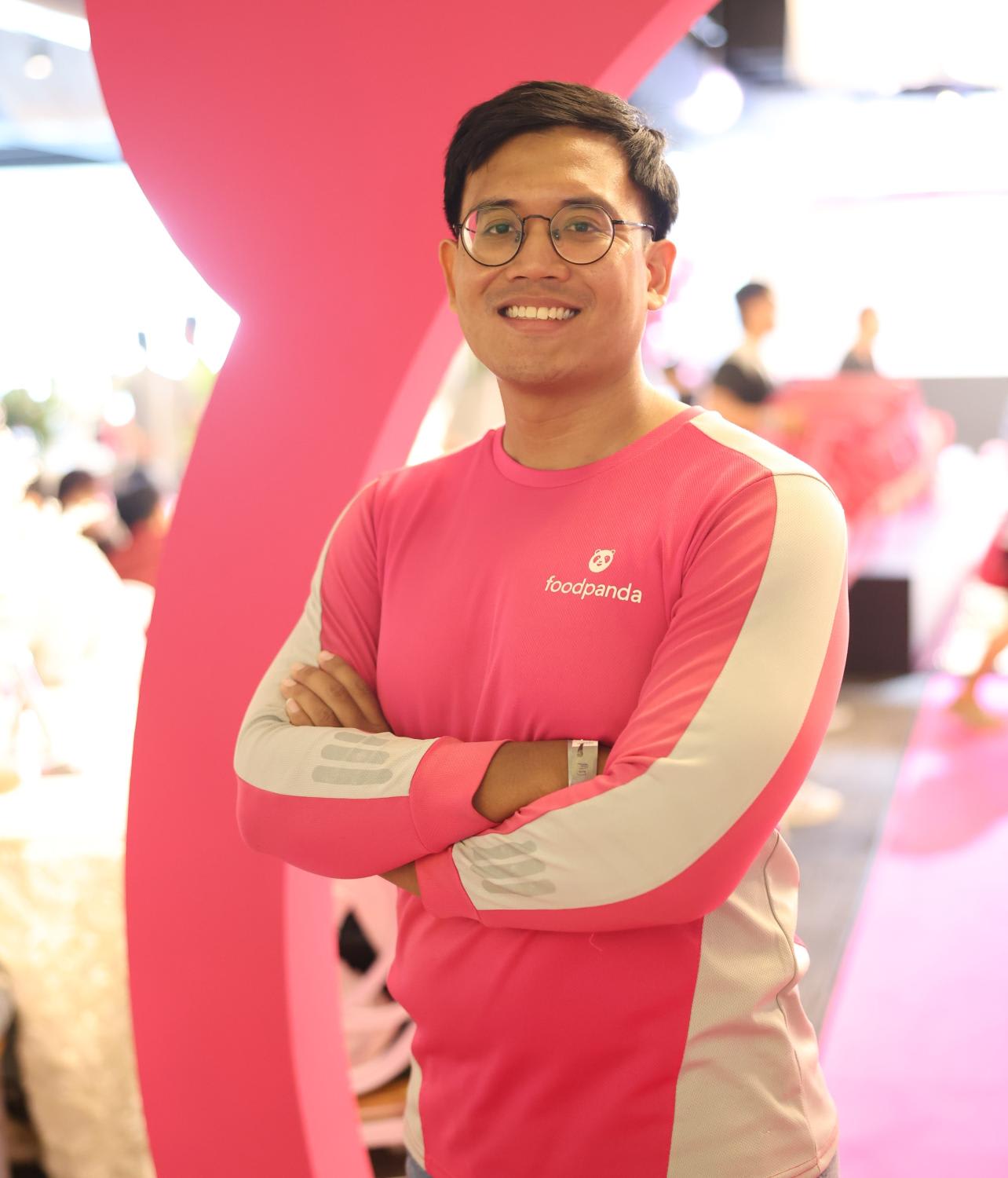Gen Y Speaks: I used to rely on odd jobs to make ends meet. Studying finance has taught me to save and set money goals
Growing up with less, I’ve always felt constant pressure to succeed.

After years of feeling lost and struggling with money problems, finance feels like a real calling for Gen Y Speaks writer Danish Said.

This audio is AI-generated.
Growing up with less, I’ve always felt constant pressure to succeed. The steps seemed simple on paper: Get a good education, start working and earn money. But in reality, the journey was not so straightforward.
Money has always been tight for my family and from an early age, I’ve always wanted to be financially independent. I wanted to do the same things my peers were doing — eating out, buying things that I liked, and going to the gym and LAN cafes with friends.
I started my first job when I was just 17 years old, working part-time as a waiter to earn pocket money. It was satisfying to be able to earn and manage my own income, especially as I could attain for myself things my parents could not buy for me. So I continued to do odd jobs in food and beverage, retail, warehouses and more.
Throughout secondary school, my interests were in sports management and science but ultimately, my O-level results did not meet the requirements for the polytechnic courses I wanted to attend.
Choosing where to study after my O-levels posed a dilemma. I felt I could fulfil my passions by attending the Institute of Technical Education, but my family felt differently. They believed I would have better career prospects by studying at a polytechnic, and I should just apply for a course I could qualify for, even if I had no interest in the subject.
Eventually, I was convinced by them and decided to follow the more “logical” option and forgo my passion and interests.
At the time, this felt like a decision that would set my life course.
FINDING PURPOSE IN FINANCE
Under the weight of our financial instability and the pressure from my family to graduate from somewhere as soon as possible, I enrolled in a polytechnic course for a diploma in art and theatre management.
There were moments where I found genuine interest in the course, but my disinterest in the subject eventually took a toll on my attendance and performance. By the last semester, I faced the harsh reality of needing to retake two years to complete the diploma.
I realised that I’d already wasted enough time on pursuing something I had no passion for. Instead of wasting more, I decided to enter the workforce so I could contribute financially.

My decision to drop out was met with understandable criticisms from my family.
Some said I was a quitter who’d wasted precious time; others said I’d made a grave mistake in life. It took even more of a toll on my mental health to see my peers graduating school and moving on in life while I was stuck in the same place I’d been three years ago.
Determined not to be a financial burden to my family, I completed my National Service and immediately began working part-time in hospitality.
Working as a bellman in a hotel, I had endless opportunities to meet people from all industries, including individuals in banking and finance. Their sharings about money management and financial independence struck home with me.
One expat shared how he came from an unfortunate background, but worked hard to reach his current occupation as a fund manager, and is now able to care for both himself and his family.
Another told me that nothing beats doing a job you love. She advised me to find something I was passionate about so that I could wake up in the morning feeling motivated, instead of feeling as if my work was a drag or bore.
This made an impression on me as I had previously given up on my passion and interests to pursue something others wanted me to. I also realised that doing random jobs solely for money wasn’t a sustainable fix to my financial problems.
I needed to first understand how money works and how to better manage it.
After years of feeling lost, this felt like a real calling. I wanted to make a positive impact on families like mine — those who may not earn very much, and need help with managing their finances.
But before I could pursue a career in finance, I needed the right qualifications. So I decided to go back to school.
In order to get a good foundation in my studies, I pursued a Higher Nitec in Financial Services at ITE College Central first before continuing with a diploma at a polytechnic.
FOLLOWING MY PASSIONS
I am now in my final year of completing my diploma in banking and finance at Singapore Polytechnic.
Going back to school at a later age has been challenging yet fulfilling. There’s still social stigma, but with my family’s support, I’ve found confidence in working towards a better self.
To fund my education and give back to my parents, I’ve spent the last four years working part-time as a foodpanda delivery partner. The job was recommended to me by a friend given the flexibility to choose my hours — something I needed in order to balance my full-time studies.

For the last four years, being my own boss in this way has taught me important lessons and skills in managing my income.
I’ve come to appreciate the value of hard work, sweat and determination, and braving the sun or rain each time I head out to work has taught me the importance of committing to my work plans in order to meet my financial goals. This is especially so with gig work, where how much I earn is proportionate to how hard I work.
I also learnt the importance of saving for a rainy day, such as when I had Covid-19 or dengue and was unable to work.
Last December, my father suffered from a stroke which, although minor, created additional strain on our household finances.
Thankfully, I managed to obtain grants from the Mendaki community, Singapore Polytechnic, and even a bursary from foodpanda, which have allowed me to cover some of my school expenses and build up a rainy-day fund. I’m grateful for the much-needed support I’ve received from my communities.
While my journey is not what I originally planned or thought it would be, I’ve come out better from every challenging twist and unexpected turn.
I don’t regret any of the decisions I made in the past and I now live by a new mantra for success: Follow my passions, do what makes me happy, and never stop learning.
ABOUT THE AUTHOR:
Danish Said, 28, is a full-time student at Singapore Polytechnic pursuing a diploma in banking and finance, as well as a part-time foodpanda delivery partner for the last four years.








